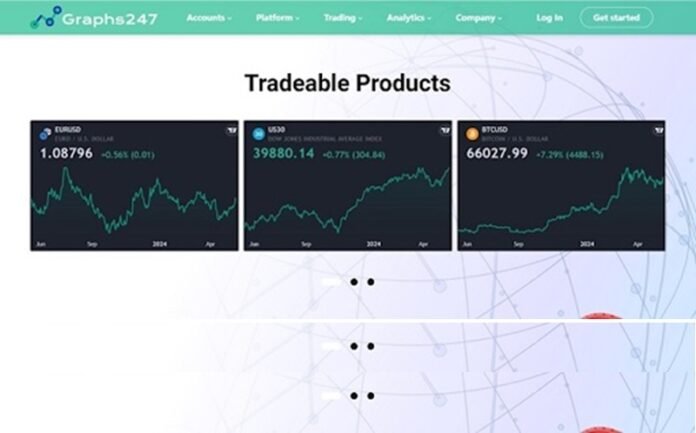The Dow Jones Industrial Average, also known as the Dow or DJIA, is one of the most widely recognized stock market indexes in the world. It is a price-weighted index that tracks the performance of 30 large, publicly traded companies in the United States. The Dow is often used as a barometer for the overall health of the stock market and the economy. In this article, we will take a closer look at the Dow Jones Industrial Average, its history, and its significance in the world of finance.
What is the Dow Jones Industrial Average?
The Dow Jones Industrial Average is a stock market index that was created by Charles Dow in 1896. It is named after Charles Dow and his business partner, Edward Jones. The index is made up of 30 large, publicly traded companies that are considered to be leaders in their respective industries. These companies are chosen by the editors of The Wall Street Journal, which is owned by Dow Jones & Company.
The Dow is a price-weighted index, which means that the stocks with higher prices have a greater influence on the indexdjx: .dji performance. This is different from other indexes, such as the S&P 500, which are weighted by market capitalization. The Dow is also unique in that it only includes companies from the industrial sector, hence the name “Industrial Average.”
How is the Dow Calculated?
The Dow Jones Industrial Average is calculated by adding up the stock prices of the 30 companies and dividing that number by a divisor. The divisor is adjusted periodically to account for stock splits, dividends, and other corporate actions that may affect the index’s value. This ensures that the index remains consistent over time and is not affected by changes in individual stock prices.
What Companies are Included in the Dow?
The Dow Jones Industrial Average is made up of 30 large, publicly traded companies that are considered to be leaders in their respective industries. These companies are chosen by the editors of The Wall Street Journal and are subject to change over time. Some of the current companies included in the Dow are Apple, Microsoft, Coca-Cola, and Goldman Sachs.
History of the Dow Jones Industrial Average
The Dow Jones Industrial Average has a long and storied history, dating back to its creation in 1896. Over the years, the indexdjx: .dji has seen many changes and has been a reflection of the ups and downs of the stock market and the economy.
Early Years
When the Dow was first created, it consisted of only 12 companies, including General Electric, American Cotton Oil, and American Sugar. The index was originally calculated by simply adding up the stock prices of the 12 companies and dividing by 12. In 1916, the number of companies was increased to 20, and in 1928, it was increased again to 30, where it remains today.
The Great Depression
The Dow Jones Industrial Average was not immune to the effects of the Great Depression. In 1929, the Dow reached an all-time high of 381.17, but by 1932, it had dropped to a low of 41.22. This was a decrease of over 89%, and it took over 25 years for the Dow to reach its pre-crash level again.
Post-World War II Boom
After the end of World War II, the Dow experienced a period of rapid growth, reaching an all-time high of 995.15 in 1966. This was largely due to the economic boom that followed the war and the rise of the United States as a global superpower.
Dot-Com Bubble and Financial Crisis
The Dow Jones Industrial Average saw significant fluctuations in the late 1990s and early 2000s, with the dot-com bubble and the financial crisis of 2008 causing major drops in the index’s value. However, the Dow has since recovered and reached new all-time highs in recent years.
Significance of the Dow Jones Industrial Average
The Dow Jones Industrial Average is often seen as a barometer for the overall health of the stock market and the economy. When the Dow is performing well, it is seen as a sign of a strong economy, and when it is performing poorly, it can be an indicator of economic downturn.
Impact on Investors
Many investors use the Dow Jones Industrial Average as a benchmark for their own investments. They may compare the performance of their portfolio to the Dow to see how they are doing relative to the overall market. Additionally, the Dow’s performance can influence investor sentiment and may cause them to buy or sell stocks.
Influence on Media and Public Perception
The Dow Jones Industrial Average is often featured in the news and is closely followed by the media and the general public. When the Dow reaches new highs or lows, it can create a sense of optimism or pessimism about the state of the economy. This can have a ripple effect on consumer spending and business decisions.
How to Track the Dow Jones Industrial Average
There are several ways to track the performance of the Dow Jones Industrial Average. The most common way is to check the indexdjx: .dji value on financial news websites, such as Yahoo Finance or CNBC. These websites provide real-time updates on the Dow’s performance, as well as historical data and news articles related to the index.
Investing in the Dow
Investors can also invest in the Dow Jones Industrial Average through index funds or exchange-traded funds (ETFs). These funds track the performance of the Dow and allow investors to gain exposure to the index without having to buy individual stocks.
Conclusion
The Dow Jones Industrial Average is a widely recognized stock market index that has been a barometer for the overall health of the stock market and the economy for over 100 years. It is a price-weighted indexdjx: .dji that tracks the performance of 30 large, publicly traded companies in the United States. The Dow’s performance can have a significant impact on investor sentiment and public perception, making it an important indicator for the financial world.
For more information, visit Apzo Media




